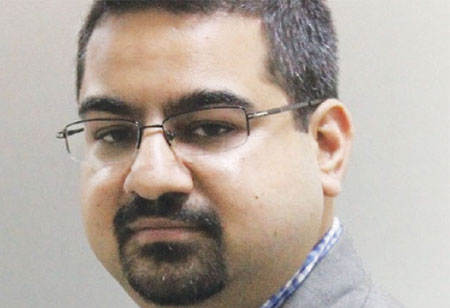Challenges Facing the Indian Market Research Industry
By Rajat Sahni, Director Operations, ReportsWeb
 According to the ESOMAR Global Market Research Report, 2014, the global market research industry crossed the turnover of USD 40b in 2013. Of this, the Asia-Pacific region accounted for some USD 6b or 15 percent of global turnover. MR turnover in India, for that same year was USD 252 million or just 4.2 percent of the Asia-Pacific pie. Within the Asia Pacific, Japan and China led the pack together accounting for 58 percent of total turnover. These figures should suggest that the size of the MR industry in India is relatively small. Comparatively, however, India was ranked 17th in terms of market size, Brazil, Mexico and South Korea being the only emerging economies to have a bigger MR industry than India.
According to the ESOMAR Global Market Research Report, 2014, the global market research industry crossed the turnover of USD 40b in 2013. Of this, the Asia-Pacific region accounted for some USD 6b or 15 percent of global turnover. MR turnover in India, for that same year was USD 252 million or just 4.2 percent of the Asia-Pacific pie. Within the Asia Pacific, Japan and China led the pack together accounting for 58 percent of total turnover. These figures should suggest that the size of the MR industry in India is relatively small. Comparatively, however, India was ranked 17th in terms of market size, Brazil, Mexico and South Korea being the only emerging economies to have a bigger MR industry than India.
Of India's total turnover, roughly 32 percent came from international clients. This fairly large component of global outsourced work has also ensured that despite its small size, the Indian market research industry remains well developed in terms of tools and techniques. The presence of specialist MR firms catering to international clients in global data collection means that this is also an area where Indian companies have used their cost advantage to garner a chunk of the international MR pie.
While the industry has grown recently, both in terms of turnover and also in terms of tools, techniques and methodologies, the industry faces a number of challenges in terms of delivering globally competitive work. The rest of this article will delve into what we have found to be the more important ones:
• Client-agency synergies: There are several areas where client firms and agencies need to develop a better model of coordination and mutually beneficial work styles that will help enhance the quality of the output that MR can provide. Clients and agencies need to develop synergies in insight generation, working together to extract actionable insights from MR data. This means
• Working together to scope out each research requirement so that achievable objectives are agreed on from the start. The client here needs to rely on the agency's expertise in deciding on ideal questionnaire length, feasibility of getting certain demographics to participate, response rates and best methodology for reaching the target groups.
• Deciding on turnaround times that are reasonable for each part of the research process. This will ensure well thought out survey instruments with sufficient background research and quality insights that are actionable for management.
• Clients recognizing that MR agencies are in a much better position to analyze and draw insights from data without overstretching conclusions. Client and agencies need to work consultatively in ensuring that the data is not overstretched to draw conclusions consistent with prior hypothesis or force conclusions that are managerially convenient for internal review.
• Technological Disruption: The last few years has seen a massive upsurge in the quality and quantity of data available to marketers and business managers. These include social media data from sites like Facebook, blogs, online chats and conversations, images posted in sites like Instagram and Photo Bucket, Twitter feeds and also the large amounts of customer data collected by business at various points of interaction and residing in large proprietary databases. The explosion of social media and the emergence of big data have been game changers as far as market research is concerned. Challenges facing the market research industry in India as a result of this technological disruption are:
• Many specialist boutique firms have emerged specializing in one aspect of the research process as far as tools are concerned. So, there are specialist social media firms, for example. What business requires, however, is synergistic reporting and story-telling where different data types are used to arrive at consistent and mutually reinforcing insights. This means that MR firms, especially the smaller ones must ensure that they hire senior managers who have some familiarity with these different tools and technologies while also knowing who to reach out to, internally and externally to bring in relevant expertise on a particular project
• MR firms are also now faced with finding the requisite talent for working on these front-end tools and technologies. This is especially true for finding
junior researchers
• Finding Talent: The industry requires a very broad skill set given the multiple methodologies and tools. Psychology, economics, statistics, business management, data analytics, textual analysis are some of the disciplines from where talent can be drawn. But pending the shortage of specialized market research courses, the learning curve for new hires is long. The need of the hour is for the industry in general and the market research and advertising industries in particular, to come together to set up more graduate level courses designed to cater to the needs of the market
research industry.




